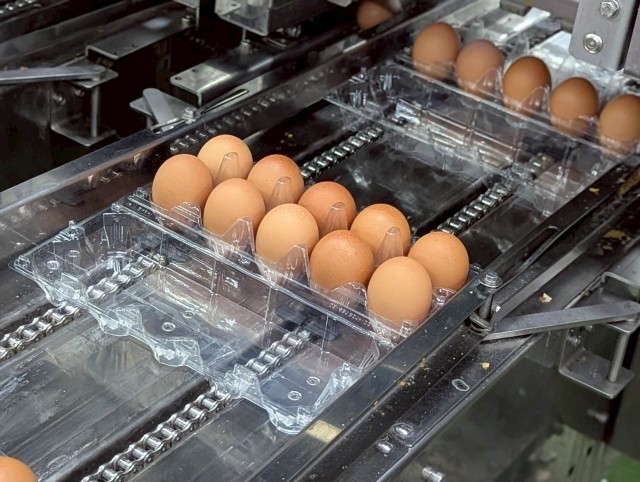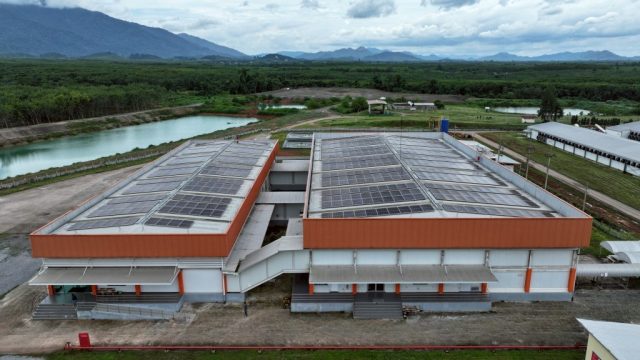Charoen Pokphand Foods Public Company Limited (CP Foods) has upgraded its layer chicken complex in Chanthaburi province to a 100% Renewable Energy (RE100) model farm, reinforcing its commitment to achieving Net-Zero greenhouse gas emissions by 2050.
As climate change continues to present global challenges, CP Foods is accelerating its transition to renewable energy across all production processes—Feed, Farm, and Food—under its Agri-Tech strategy. The company’s RE100 initiative is a key pillar of its sustainable development roadmap, aiming to secure long-term energy resilience and reduce environmental impacts.
The Chanthaburi farm was previously operating on approximately 80% renewable energy through biogas produced from chicken manure. It has now transitioned to full renewable energy use by integrating solar power and optimizing biogas generation. The achievement has earned CP Foods its first “RE100 Farm” certification from LRQA (Thailand), making it the company’s flagship green farm. The transformation embodies the “Waste to Value” concept by converting waste into clean energy and eliminating external pollution.

Somkid Wannalukkhee, Head of the Egg Business at CP Foods, emphasized that the integrated production system—housing layer barns, automated egg grading, and processing facilities in a single location—enhances efficiency and reduces logistics costs while ensuring high food safety standards. He noted that the company has implemented biogas systems at all its farms and continues to pursue 100% renewable energy use as a standard practice.
Peerapong Krinchai, Head of Corporate Engineering at CP Foods, added that in 2023, the Chanthaburi farm installed an additional 360 kWp rooftop solar power system by Altervim, alongside a smart Energy Management System (EMS). This technology enables efficient energy sourcing between biogas and solar, further reducing reliance on external power and strengthening energy self-sufficiency.
The farm now offsets over 16,500 tons of CO₂ emissions annually—equivalent to planting more than 1.7 million trees.
Looking ahead, CP Foods aims to replicate the RE100 farm model across its operations nationwide as part of its broader mission to promote environmental sustainability and achieve its Net-Zero 2050 target.













